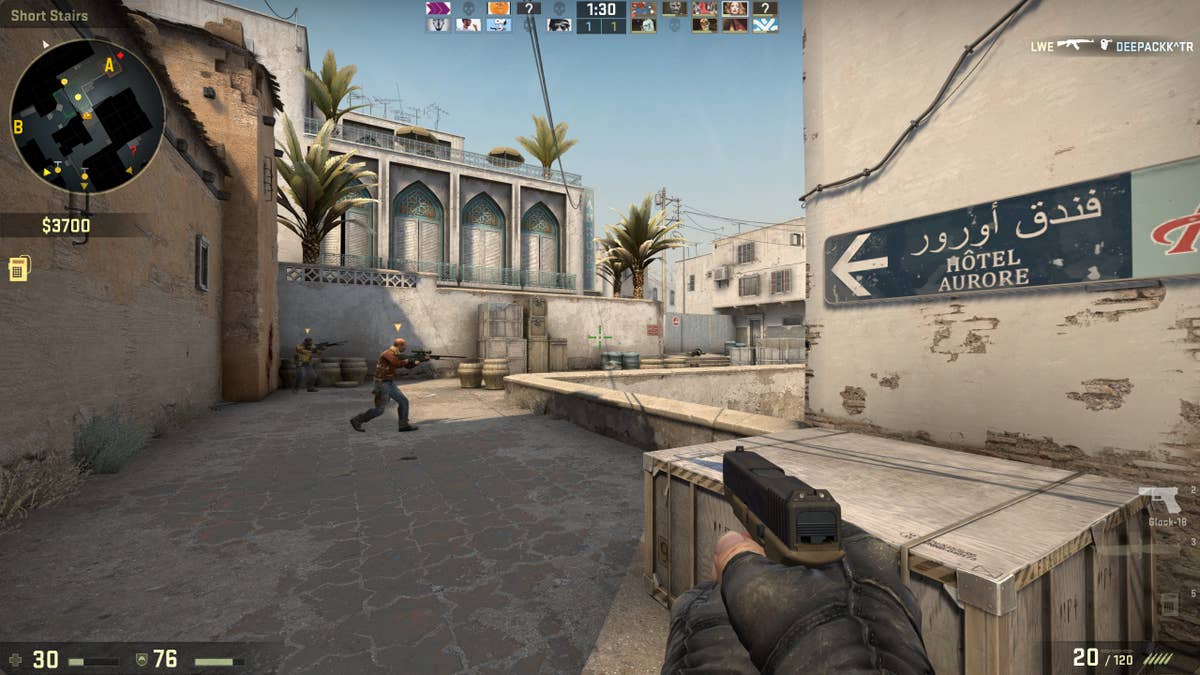Caribbean Business Insights
Exploring the vibrant business landscape of the Caribbean.
Caught in the Act: The Hidden World of CSGO Cheaters and Anti-Cheat Measures
Discover the shocking truth behind CSGO cheaters and the battle against them. Uncover the hidden tactics that could change your game forever!
The Anatomy of a CS:GO Cheater: Techniques and Tools Uncovered
The world of CS:GO cheating is as intricate as it is controversial. Cheaters often employ a variety of techniques to gain an unfair advantage, many of which are designed to remain undetected by both players and the game's anti-cheat systems. One of the most common strategies is the use of aimbots, software that automatically aims at opponents' heads, ensuring instant kills. Additionally, wallhacks allow players to see through walls and obstacles, providing them with critical information about enemy positions. Other notorious cheats include triggerbots, which fire a weapon automatically when an enemy is detected within the player's crosshairs, further diminishing the skill-based nature of the game.
To understand the anatomy of a CS:GO cheater, it's essential to examine the tools they use. Many of these cheats are available on underground forums and websites, sometimes for free or for a subscription fee. Among the most popular programs are cheat clients that encompass all previous functionalities—aimbot, wallhack, and more—into a single application. Additionally, some cheaters use social engineering techniques to manipulate others into sharing their accounts or providing access to cheat tools. This multifaceted approach not only highlights the lengths to which some players will go to exploit the game but also underscores the ongoing challenges faced by developers in terms of detection and prevention.

Counter-Strike is a highly popular first-person shooter game that emphasizes teamwork and strategy. Players can engage in various game modes, including bomb defusal and hostage rescue. For those looking to improve their gaming experience, using clear decals cs2 can significantly enhance performance by reducing visual clutter.
Behind the Scenes: How Anti-Cheat Systems Work in CS:GO
The competitive integrity of Counter-Strike: Global Offensive (CS:GO) is upheld by sophisticated anti-cheat systems designed to identify and eliminate unfair advantages in gameplay. At the core of these systems is Valve Anti-Cheat (VAC), which employs a combination of heuristics and signature detection methods to spot cheating software. When players start the game, VAC monitors for known cheats or unusual patterns of behavior, collecting data on client-side operations to ensure no unauthorized modifications are present. If a player is found to be using cheats, they face penalties, including account bans, thereby maintaining a level playing field for all participants.
Additionally, CS:GO integrates community-driven reports and automated analysis systems to enhance its anti-cheat measures. Players can report suspicious behavior, which is then reviewed through an automated system that evaluates gameplay patterns and player actions for anomalies. This dual approach ensures that while established cheats can be detected, there is also a robust mechanism for identifying new or less common cheating strategies. Ultimately, behind the scenes, a delicate balance of technology and community vigilance works to uphold fairness in one of the world’s most competitive esports titles.
Is Cheating Ruining CS:GO? Exploring the Impact on Players and Game Integrity
Cheating in CS:GO has become a pressing issue within the gaming community, affecting both casual players and professionals alike. The prevalence of cheats undermines the fundamental fairness of the game, leading to frustration among players who dedicate time and effort to improve their skills. Many argue that the increasing use of cheats not only diminishes the enjoyment of the game, but it also deters new players from participating, ultimately harming the game’s community and longevity. The impact extends beyond just gameplay; the integrity of competitive matches is compromised, making it difficult for players to trust the legitimacy of their opponents.
Moreover, the effects of cheating in CS:GO manifest in several ways, severing the bond between players and the game itself. Competitive integrity is at stake as match results can be heavily influenced by those employing cheats, which leads to a cycle of disillusionment. Players may feel the need to resort to cheating themselves to remain competitive, further exacerbating the problem. This vicious cycle underscores the necessity for effective anti-cheat measures and community vigilance in order to preserve the essence of fair play and restore faith in the game's integrity.